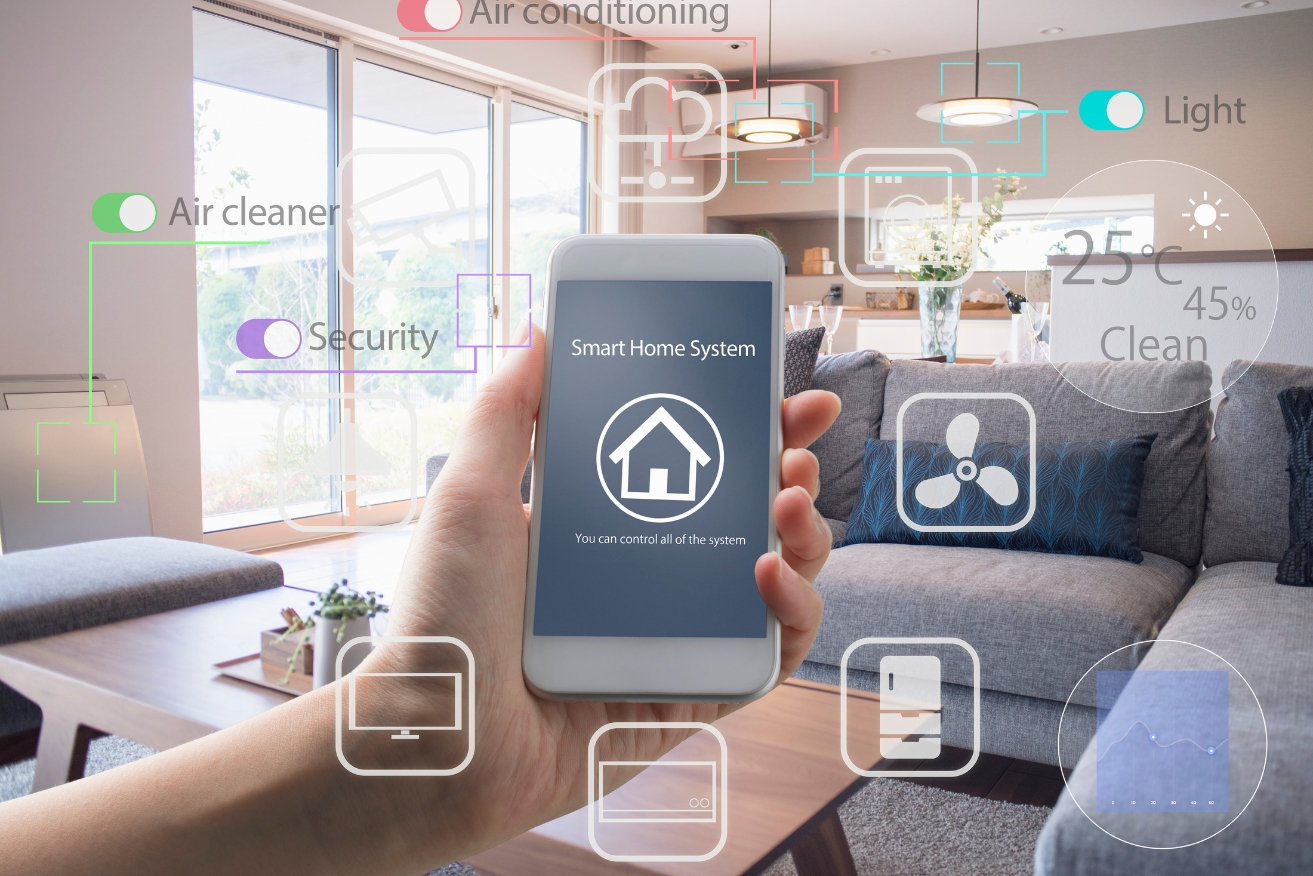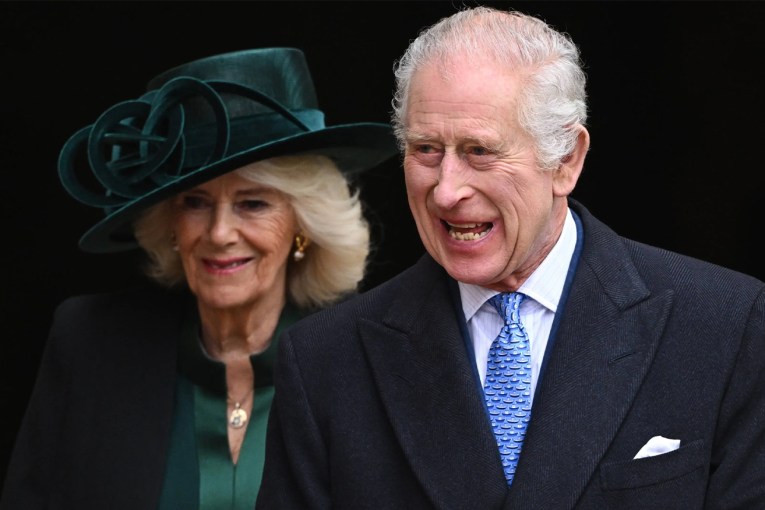‘Like a butler’: Smart homes get smarter, thanks to AI


Australians are able to control more of their home devices from the palm of their hand. Photo: Getty
Smart TVs, doorbell cameras and voice-activated assistant devices are common in many homes.
The integration of AI into existing home products will bring more changes.
Samsung Electronics Australia research found 20 per cent of Australians believe homes will have an AI-powered system that is capable of controlling their house by 2029.
Australia is heading in this direction, with almost two-thirds of people polled planning to purchase smart devices like pet cameras, lighting, speakers, and fridges this year.
Futurist and author of the Samsung report, Steve Sammartino, said AI has passed a fork in the road, moving from predictive to generative.
The technology is also more easy to use.
“Within a home context, what that means is that finally all of our devices, our cars … and our energy are all going to become interconnected in a way which makes things more efficient,” Sammartino told The New Daily.
“It’s not like we have to wait and hope that someone creates a piece of software that works for us; we literally train our AI like we would train a dog.”
Smart homes
University of Queensland associate professor of business information systems Christoph Breidbach said smart home technology is so common it has faded into the background of our lives.
Smart technology includes Amazon’s Alexa, which responds to voice commands to play music or turn off lights, to apps which allow you to check the energy production of your roof’s solar panels.
CQ University associate professor of information and communication technology Michael Cowling said a major roadblock to the development of smart home technology was the lack of profitability for companies.
In 2022, The Wall Street Journal reported Amazon’s Alexa business had been operating at a $5 billion annual loss.
The lack of connection between devices from different companies is also a barrier.
“There was a standard called ‘Matter’ which was supposed to unify it so if you have an Amazon Echo device, but you buy a lightbulb from somebody else and you buy a doorbell from somebody else, they all work together,” Cowling said.
“I don’t necessarily think that we are quite there.”
AI changes
Sammartino said anything that has electricity will soon include AI.
This means all the devices in our homes will be ‘smart’, able to communicate with each other and interpret audio, images, text and video to perform a wider variety of tasks.
Devices will also increasingly run automatically in the background so users don’t have to give constant instructions.
“The TV, the phone, the fridge, the washing machine … all of that starts to work symbiotically,” Sammartino said.
“[It will] become almost like a butler for the house that serves your needs in an anticipatory fashion.”
Breidbach gave the example of an AI smart home device turning on the air conditioning an hour before your family comes home, so they can instantly escape the heat in summer without wasting too much energy.
Cowling said the emergence of spatial computing devices, like the Apple Vision Pro, will bring another layer to the smart home experience.
“We’ve already seen people doing things like creating a timer and then making it float above a pot on the stove,” he said.
“If we then combine those with smart home devices, then we get something really interesting where … the doorbell rings, you’re wearing your Vision Pro, you look at the door and a video is overlaid … with the picture of the person standing at the door [through your doorbell camera].”
Privacy concerns
If recent trends are a sign, many are willing to make the compromise, but Sammartino said companies that respect privacy and avoid data breaches will benefit.
Smart home devices are already listening and watching, with companies like Amazon getting comprehensive insight into people’s homes and personal lives through devices like Alexa and robot vacuums.
Before the technology expands further, government leadership is needed to impose regulations on what information smart home devices can store, who owns this data, and how it can be used or sold.
But Breidbach said regulators are often two steps behind technological advancements, with Australia not as rigid as the European Union, but not as lax as the US.








